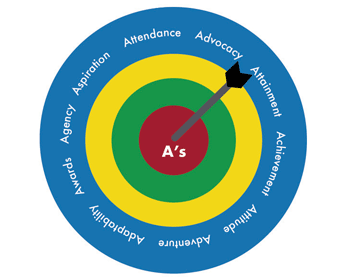The Children’s University concept is relatively simple: the program helps to inspire a passion for learning from an early age for children and celebrates this learning journey outside of the classroom. The program provides a framework to nurture aspirations, encourage children to discover new passions, visit new places, develop new skills and, above all, have fun!
Although open to all, the program particularly aims to reach children and young people, aged seven to 14 years, facing socio-economic and educational disadvantage.
Benefits to schools
Independent evaluation carried out by the University of Cambridge has shown that CUA involvement fosters ten measures of success in school children, collectively these are known as the 10 A’s.
Schools we currently work with:
- Australind Primary School
- Balga Primary School
- Brunswick Junction Primary School
- Burns Beach Primary School
- Camboon Primary School
- Clifton Park Primary School
- Cooinda Primary School
- Dalyellup Primary School
- East Wanneroo Primary School
- Edgewater Primary School
- Leschenault Catholic Primary School
- Midland Home Schooling Group
- Morley Primary School
- North Metro Home Schooling Group
- Peter Moyes Anglican Community School
- Quinns Beach Primary School
- Roseworth Primary School
- Somerly Primary School
- St Stephens School Tapping
- Swan View Primary School
- Tuart Forest Primary School
- UWA Partner Schools

